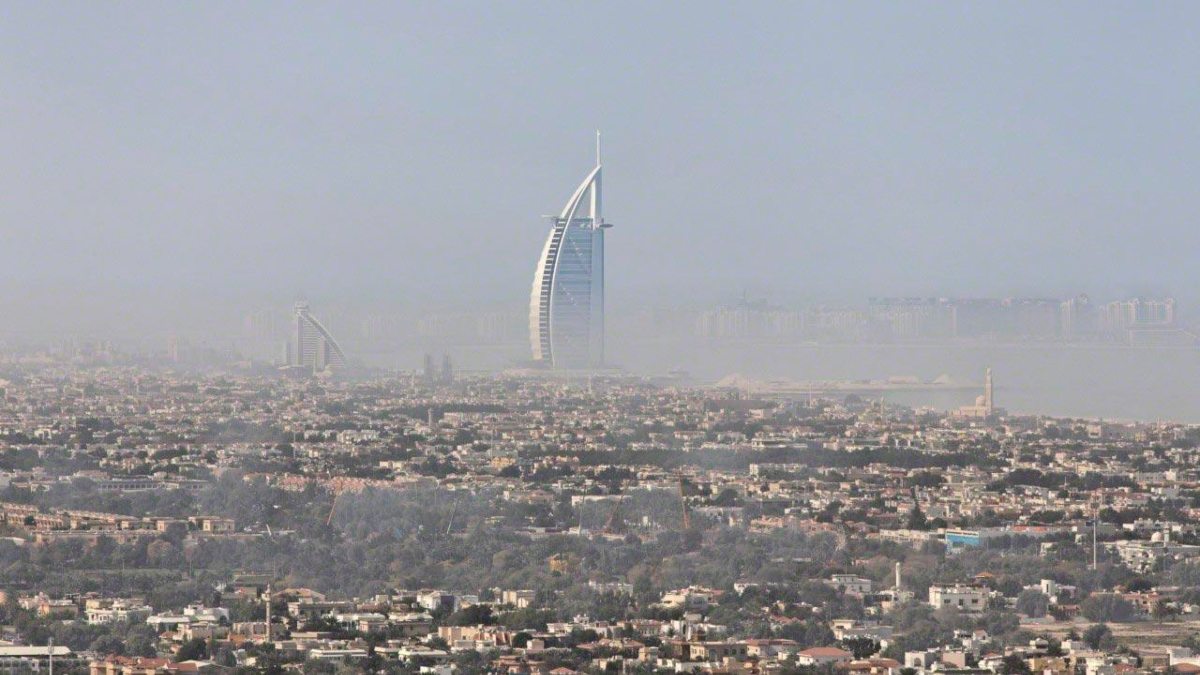In response to the growing concerns over air quality, the UAE has announced the development of a “practical long-term strategy” aimed at improving the air quality across the nation. This initiative is especially targeted at addressing the unique challenges posed by the desert climate, which significantly impacts the air quality in the region.
A spokesperson for the Ministry of Climate Change and Environment (MoCCAE) highlighted the gravity of the situation, stating, “Desert nations are confronted with particulate matter levels three times higher than the levels recommended by the World Health Organisation’s guideline, by the nature of their geographic location.” This statement was shared with Khaleej Times, underlining the critical need for intervention in these areas.
The urgency of the matter was further underscored by the UAE’s ranking as the 7th most polluted country in the world, according to the 2023 World Air Quality Report by Swiss air quality technology company IQAir. The report, which analyzed PM2.5 air quality data from 7,812 cities, found that 124 out of 134 countries and regions exceeded the WHO’s annual PM2.5 guideline value of 5µg/m3.
The UAE, along with three other countries in the GCC, was listed among the 13 most polluted in the world, with a PM2.5 concentration of 43µg/m3, significantly exceeding WHO guidelines. IQAir’s report emphasized the dangers of PM2.5 particles, which are so small they can penetrate deep into the bloodstream, posing serious health risks.
Recognizing the critical link between air quality and public health, the MoCCAE has taken proactive steps towards mitigating air pollution. The ministry has launched various national and international initiatives, including the National Air Quality Platform, which provides real-time data on air quality levels to residents.
The spokesperson affirmed, “We will continue to rigorously monitor air quality levels across the Emirates to gain a clear, comprehensive, and reliable picture of our air quality progress, as well as our challenges, so we can refine, upgrade, and develop the requisite solutions.”
Moreover, the UAE’s Air Quality Agenda 2031 has been introduced as a comprehensive blueprint to prioritize and address both outdoor and indoor air quality, aiming to safeguard the health and wellbeing of its nearly 10 million residents.






